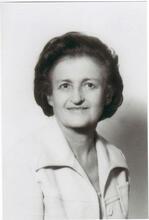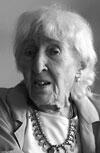Vera Fonaroff
An exceptional violinist and member of the women-only Olive Mead Quartet, Vera Fonaroff believed that music could bridge any social divide. Fonaroff immigrated to America at age seven and debuted as a soloist with the Metropolitan Opera House Orchestra at age nine. She later studied at the Royal Manchester College of Music, toured England as a soloist, and took part in lecture-recitals with George Bernard Shaw. After returning to New York, Fonaroff joined the Olive Mead Quartet in 1909 as second violinist, performing with them until 1923. The string quartet was highly regarded for premiering new works and proving the skill of female musicians. Fonaroff served as director of violin instruction at the school later known as Juilliard and made several innovations to violin pedagogy.
Article
Vera Fonaroff began her career in the early 1900s as a solo violinist and recitalist, and later was a member of the critically acclaimed Olive Mead String Quartet. She taught the violin for many years and was esteemed as a violin pedagogue. A dedicated musician and teacher, she believed in the power of music for social good. In 1930, she wrote, “Music trains the hand, the head, the heart. Music is the great emotional leveler, wherein alone we speak to each other in the esperanto of the soul.”
Born in Kiev on June 14, 1883, to Alexander and Sonia Hochstein, Vera immigrated to the United States when she was seven years old. She was the fourth of five children. She studied the violin with Mark Fonaroff, who was also a Russian emigré and whom she later married. She debuted as a violin soloist at age nine with the Metropolitan Opera House Orchestra and thereafter made frequent solo appearances. She later went to England to study with Adolph Brodsky at the Royal Manchester College of Music. After five years of study, she was awarded a Diploma with Distinction as both artist and teacher. She remained in England after graduating, touring as a soloist and recitalist with the pianist Richard Epstein. She also participated in lecture-recitals presented by George Bernard Shaw. Eventually, she returned to New York to study with Franz Kneisel. It was at this time, in 1905, that she eloped with her former teacher, Mark Fonaroff.
In 1909, Vera Fonaroff joined the Olive Mead Quartet as second violinist. This all-woman string quartet was professionally very active for almost twenty years and was highly esteemed. They set a high standard of performance, rehearsed several hours a day, toured extensively, and presented both world and United States premieres of new works (including the world premiere of the Amy Beach Piano Quintet). Were it not for the women’s movement of the early twentieth century, the Olive Mead Quartet could not have existed, but the quartet also contributed to the movement by giving an example of what women could achieve, given the means and the opportunity.
Vera Fonaroff had two daughters, Olga and Nina. Olga, who was born in 1910, was mentally handicapped and died at age twenty-three. Nina, who was born in 1914, became a well-known dancer with the Martha Graham Company and an active choreographer in the 1940s and 1950s.
In 1923, after the Olive Mead Quartet disbanded, Fonaroff became an instructor of the violin at the New York Institute of Musical Art (now the Juilliard School) in the preparatory department. A year later, she was appointed director of violin instruction, a post she held until 1930, the year after her husband died. From 1926 to 1939 and 1948 to 1955, she taught violin at the institute itself. In 1929, the pianist Josef Hoffman, then head of the Curtis Institute of Music in Philadelphia, asked Fonaroff to fill a vacancy left by the death of Leopold Auer. Although she remained in New York, she taught at Curtis until 1933. She also taught at the Damrosch Institute and the Henry Street Settlement Music School. In addition, she taught violin privately at her home. In 1941, she joined the faculty of the Mannes College of Music, where she continued teaching until her death at age seventy-nine on July 23, 1962.
BEOAJ; Bloch, Adrienne F., and Carol Neuls-Bates. Women in American Music: A Bibliography of Music and Literature (1979).
Fonaroff, Nina. Telephone interviews with author, September 22, 1966, May 17, 1997.
Fonaroff, Vera. Archives. Juilliard School, NYC, and Curtis Institute of Music, Philadelphia.
Obituary. NYTimes, July 24, 1962, 27:3.
Olive Mead Quartet. Clippings files. New York Public Library of Performing Arts, Lincoln Center, NYC.
Rockwell, Donald Shumway. Women of Achievement: Biographies and Portraits of Outstanding American Women (1940).
Who Is Who in Music (1941): 95.
WWIAJ (1938).

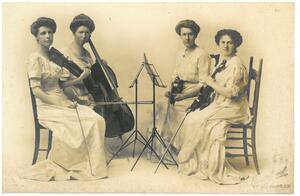
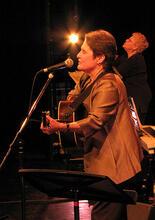
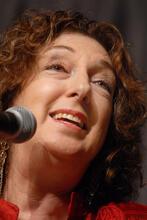

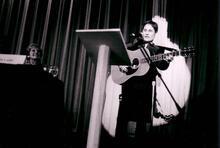
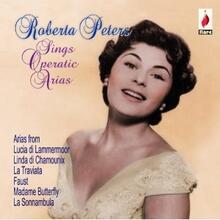
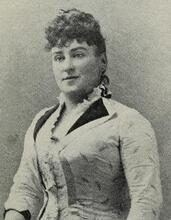
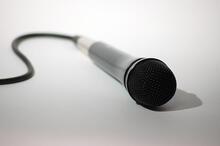
![blue.jpg - still image [media] blue.jpg - still image [media]](/sites/default/files/styles/medium/public/mediaobjects/blue.jpg?itok=RkdKmpf6)
